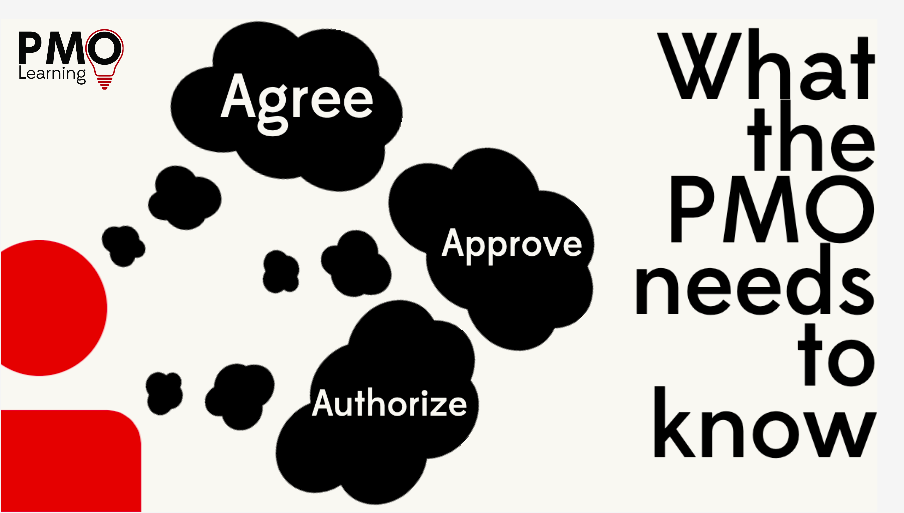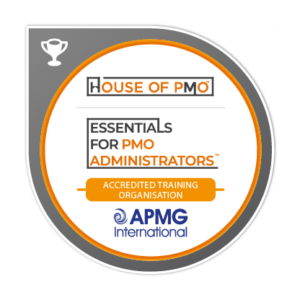
Agree, Approve and Authorize
At a quick glance, all three words can appear synonymous. If you think about how and when you use each of the terms, you might recognise that you even use them interchangeably. Whilst these may appear to be simple words, how and when we use them can lead to confusion over individuals’ roles and the role of the PMO.
The dictionary (unsurprisingly) provides us a little more clarity:
-
agree – [uh–gree] verb – to have the same views, emotions, etc.; harmonize in opinion or feeling
-
approve – [uh–proov] verb – to confirm or sanction formally; ratify.
-
authorize – [aw-thuh-rahyz] verb – to to give authority or official power to; empower.
Whilst these may appear to be simple words, there is often significant confusion in regard to the application of such terms.
If you consider more closely the meaning of each, you can start to recognise that for project artefacts and decisions, there are often different roles involved in agreeing, approving and authorising.
Clarifying the Roles who Agree, Approve and Authorize
Many delivery methods used in organisations define roles within a RACI (Responsible, Accountable, Consulted and Informed) matrix. When applying RACI to activities, a common translation is:
A – The individual whose A** gets kicked if the activity is not undertaken or is not undertaken to the right quality
R – Those who Run around and actually do the work
C – Those who provide advice and guidance on how the work should be undertaken and check the work has been completed satisfactorily
I – Those who are recipients of the outputs.
When it comes to applying RACI to decision making, using the terms agree, approve, and authorize can provide additional clarity:
A – The individual who is required to authorize the decision, without which no subsequent actions can proceed.
R – Those who are required to support and approve the decision
C – Those who are required to agree the decision
I – Those who are informed of the decision once it has been authorized.
What also needs to be clarified within the role definitions is if, or under what conditions, authorisation is allowed without approval, and/ or approval without agreement; recognising the impact this can have on project risk and stakeholder engagement. 
The role of the PMO
It is a common misconception (and sometimes proliferated by power-hungry PMOs) that the PMO’s role is the authorization of project decisions or artefacts.
P3O Best Management Practice (explored further in the P3O® Foundation course) defines PMOs as,
The decision-enabling and support business model for all business change within an organisation,
making it clear that PMOs are not the decision makers, i.e. authorizers of decisions. Authorization of project decisions need to sit within the governance framework set up for each project, down from the Corporate/ Programme Board through the Sponsor, Project Manager, and the Project Team.
As part of an assurance role, the PMO may be required to agree or approve an artefact or decision, and where the PMO has established credibility, those in authority may choose not to authorise a decision without the PMO’s agreement or approval. That is a very different thing to PMOs having an authorising role.
Take a look at the procedures within your own organisation – What terms do you use in each role description? – Is there clarity on which roles agree, approve and authorise? – Is the role of the PMO clear? – Does the role of the PMO conflict with the role of the Project Sponsor or Manager?
Let us know in the comments below!
The P3O® courses on this page are offered by PMO Learning. P3O® is a [registered] trade mark of AXELOS Limited. All rights reserved. P3O® is a registered trade mark of AXELOS Limited, used under permission of AXELOS Limited. The Swirl logo™ is a trade mark of AXELOS Limited, used under permission of AXELOS Limited. All rights reserved.
Enjoying Our Blog?
Sign up and receive all our articles (we’ll send you an update once a week!) plus special offers and events:












